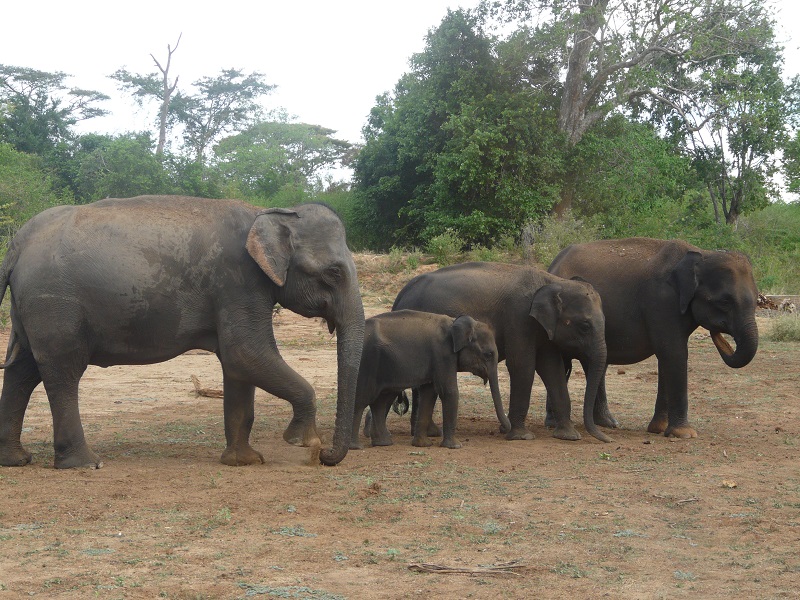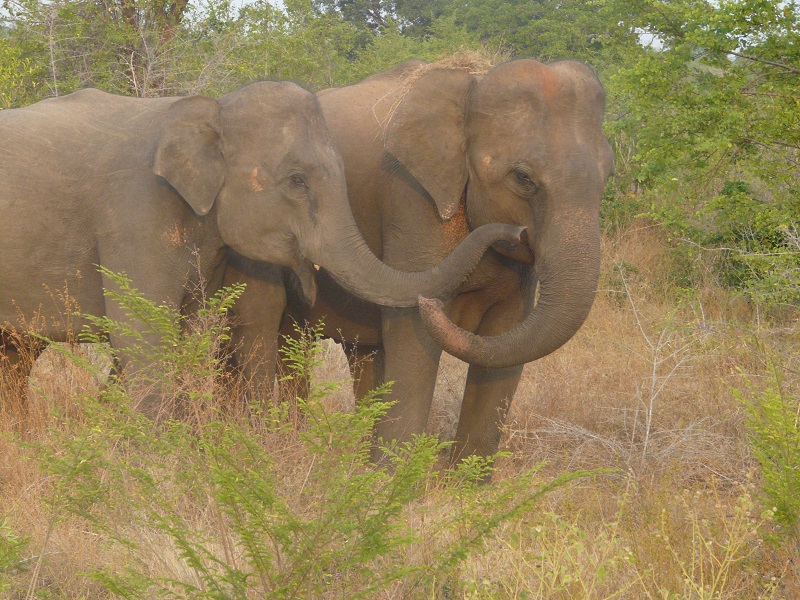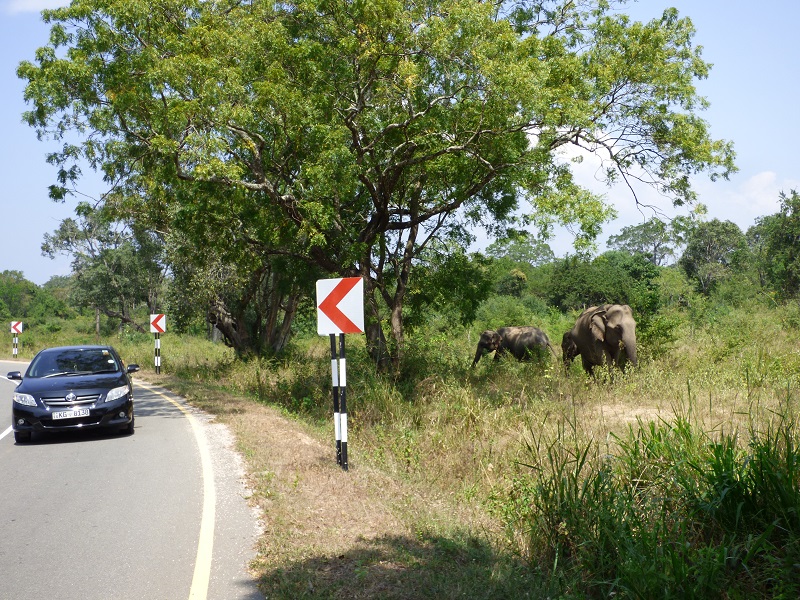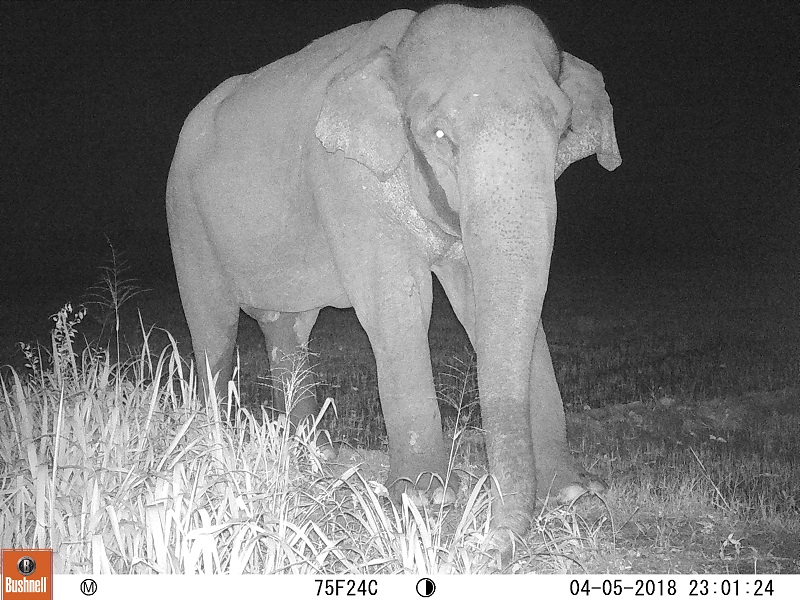Shermin De Silva
Research
We study socioecology broadly construed, or how social systems influence ecological systems and vice versa. Human and nonhuman societies are intimately bound together with surrounding ecosystems. These conditions present both constraints and opportunities for the expression of social attributes and behavior. Likewise, societies can have profound impacts on environments. We study communities at all levels of organization, from individuals to populations, drawing from multi-disciplinary perspectives to develop research motivated by both basic and applied aims. Broad themes include:
- Animal behavior: How are animal societies potentially shaped by ecological factors? How do populations respond to anthropogenic activities? How can we anticipate and mediate negative interactions between human and non-human agents (“human-wildlife conflict”) in the current era of anthropogenically-driven land-use and climate change? What are the demographic impacts of the social and ecological context of wildlife populations?
- Human behavior: What factors (socioeconomic, psychological, cultural, environmental, etc.) facilitate human willingness to accommodate wildlife on shared landscapes? Which factors are malleable and amenable to conservation interventions?
- Land-use change, past and future: What constitutes suitable habitat for wildlife in both social and ecological terms? How have ecological regimes been maintained in the past, how might they be maintained in the future, in just and equitable ways?
- Impact of conservation interventions: Are conservation interventions replicable across different socioecological contexts? What is transferable and what is not?
Current research is largely on elephants, more heavily skewed towards Asia, though other species and contexts may be considered as opportunities arise. We are interested in studying the response of elephant populations to land-use change, behavior inside and outside protected areas, and population structure. We are also interested in experimentally testing the (short and long-term) response of elephant, human, and ecological communities to agricultural interventions designed to facilitate sustainable land-sharing with wildlife.
I do not intend to recruit PhD students in the Fall 2024 application period

Udawalawe Elephant Research Project

Udawalawe Elephant Research Project

Udawalawe Elephant Research Project

Udawalawe Elephant Research Project
Select Publications
Go to full publication list- Madsen, A. and de Silva, S. (2024). Societies with fission–fusion dynamics as complex adaptive systems: the importance of scale. Philosophical Transactions B, 379(1909), p.20230175.
- de Silva, S., Ruppert, K., Knox, J., Davis, E.O., Weerathunga, U.S. and Glikman, J.A. (2023). Experiences and emotional responses of farming communities living with Asian Elephants in Southern Sri Lanka. Trees, Forests and People, 14, p.100441.
- de Silva, S., Wu, T., Nyhus, P., Weaver, A., Thieme, A., Johnson, J., Wadey, J., Mossbrucker, A., Vu, T., Neang, T. and Chen, B.S. (2023). Land-use change is associated with multi-century loss of elephant ecosystems in Asia. Scientific reports, 13(1), p.5996.
- Pardo, M. A.,J.H. Poole, A. S. Stoeger, P.H. Wrege, C.E. O’Connell-Rodwell, U.K. Padmalal, S. de Silva (2019). “Differences in combinatorial calls among the 3 elephant species cannot be explained by phylogeny.” Behavioral Ecology, 30(3), pp. 809–820. doi: 10.1093/be.
- de Silva, S., V. Schmid, G. Wittemyer (2017). “Fission-fusion processes weaken dominance networks of female Asian elephants in a productive habitat.” Behavioral Ecology, 28(1), 243-252.
- de Silva, S., L. Webber, U.S. Weerathunga, T.V. Kumara, D.K. Weerakoon, G. Wittemyer (2013). “Demographic variables for wild Asian elephants using longitudinal observations.” PLoS One, 8(12): e82788. DOI:10.1371/journal.pone.0082788).
- de Silva, S., A. Ranjeewa, S. Kryazhimskiy (2011). “The dynamics of social networks among female Asian elephants.” BMC Ecology, 11, 17. DOI: 10.1186/1472-6785-11-17
Biography
Shermin de Silva received her PhD in Biology from the University of Pennsylvania in 2010, where she was also a Language and Communication Sciences Fellow. She was an NSF Postdoctoral Fellow at Colorado State University, a Junior Life Sciences Fellow at the Institute for Advanced Study in Berlin, and a James Smithson Fellow at the Smithsonian Conservation Biology Institute. She is the president and founder of Trunks & Leaves Inc., a 501c3 nonprofit dedicated to the evidence-based conservation of elephants and their habitats.

